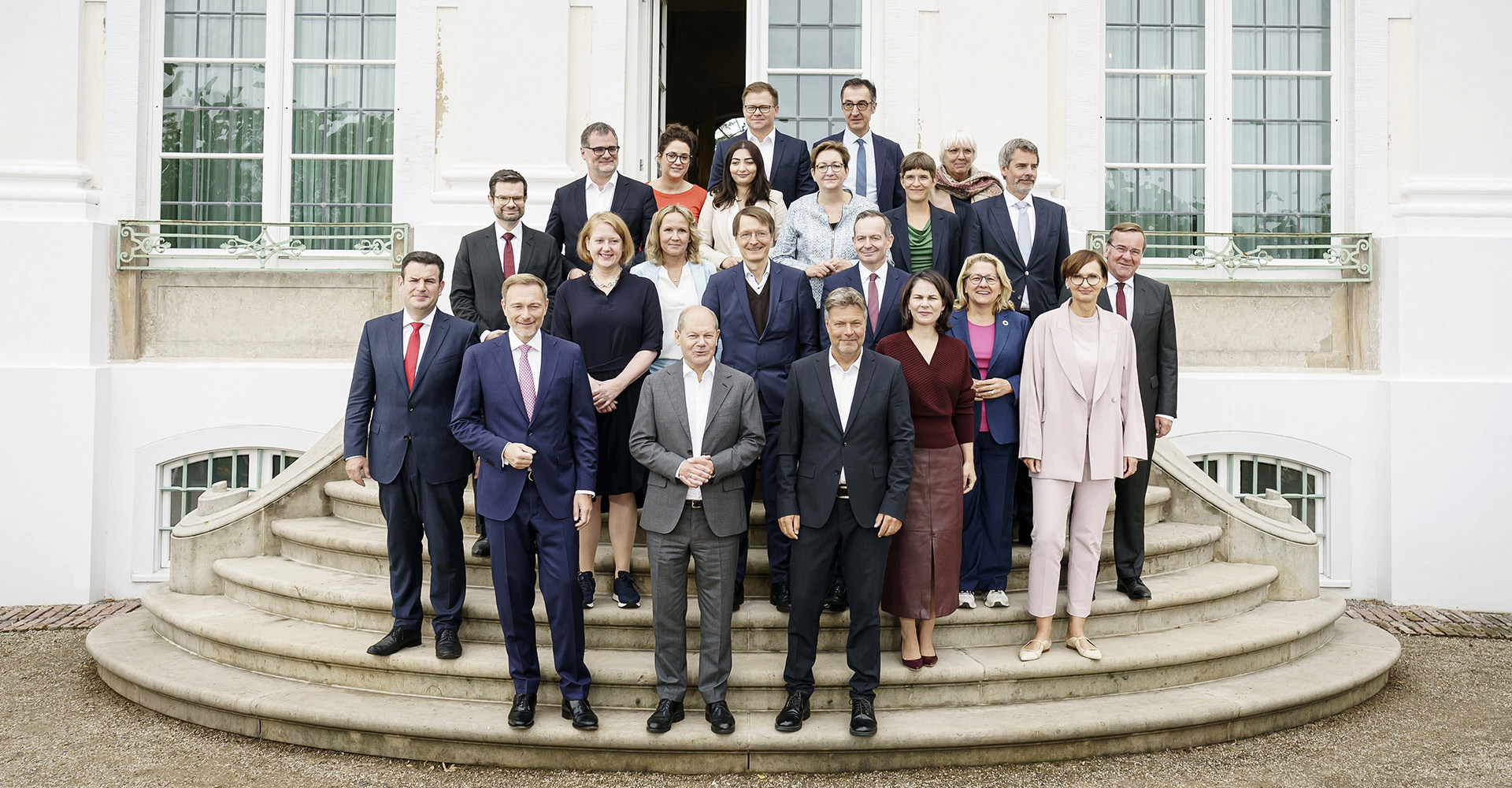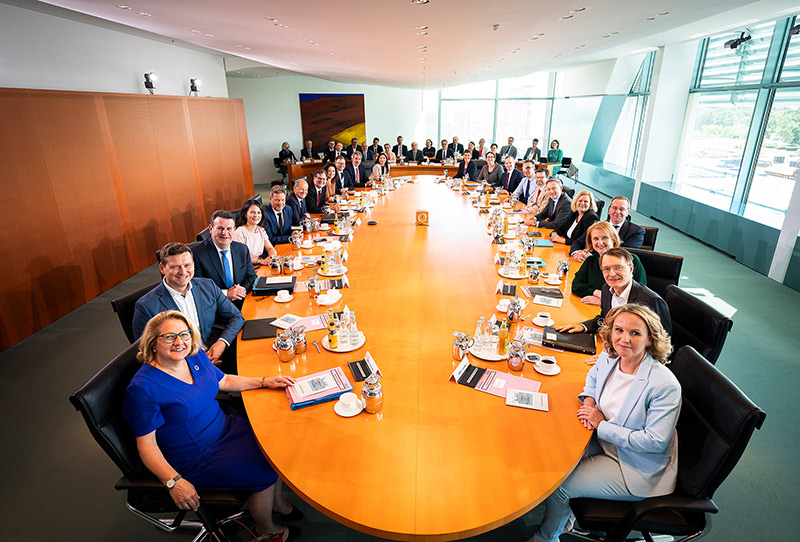
The federal government

Celebrate with the Federal Government
In 2024, we are celebrating German Unity Day in Schwerin. The Federal Government will also be joining in the festivities. From 2 to 4 October, all departments will be represented outside the Chamber of Industry and Commerce. The highlight will be the citizens’ Q&A sessions with the Chancellor and federal ministers. You are warmly invited to participate.

Federal Chancellor Olaf Scholz
Dear Fellow Citizens,
This year we are celebrating German Unity Day in Schwerin. This year is a very special one, as it is both the 35th anniversary of the Fall of the Berlin Wall, and the 75th anniversary of Germany’s Basic Law. This double milestone is an excellent occasion to celebrate a Germany that is free, democratic, based on the rule of law – and united.
Germany’s Basic Law provides the framework for everything the state does. It is a deeply impressive document, drawn up only a few years after the end of World War II. The lessons learned from German history are very clearly expressed in Article 1: Human dignity is inviolable. The right to the free development of one’s personality, freedom of expression, freedom of the press and faith, equal rights: these are all fundamental rights which we now take for granted and which underpin all aspects of our lives.
In the peaceful revolution of 1989, courageous women and men opened up a path that allowed us to overcome the division of Germany and end the separation of our country into east and west, leading to German unity in 1990. Since that day, the fundamental rights of our Basic Law have applied throughout our nation. German unity has been an incredible benefit for our country. That said, let us not forget what a huge adjustment it meant after 40 years in the GDR, demanding changes to everyday life that were not always easy. The loss of employment, unresolved property issues and the challenges of a social market economy were daunting and challenging. For many years, people failed to acknowledge and honour the effort it took for our fellow citizens from the former east to adjust and come to terms with the new situation.
Today, our united nation is thriving. There is almost full employment, the number of people in work is at a record level, and many high-tech companies are moving to our country, especially to the east. There is a statutory minimum wage, we have pension parity in the east and the west, and the standard of living is becoming more and more equal across the nation.
But we are also living in unsettled times. The Russian invasion of Ukraine marked a turning point, and we continue to feel its consequences. Many citizens fear that the conflict could spill over and spread. The fight against global warming is forcing us to change the way we do business, to give up fossil fuels and instead switch to wind power, solar energy and hydrogen. Roads and railways have been neglected for too long; now, we are making the necessary major investments to remedy this. We may have overcome the coronavirus pandemic, but the memory of that difficult time still lingers.
The best way to get through these turbulent times is to be there for one another, to be united and not let ourselves be driven apart. The spirit so many of us absorbed during reunification can help and inspire us to overcome the current challenges.
The 3rd of October is a wonderful opportunity to look back with pride on the progress we have made together. As a nation, we have grown together, and we are a strong country that can count on the support of close friends in Europe and beyond. Let us build on this!


The Federal Chancellor heads the Federal Government. Together with the federal ministers, he forms the Federal Government, the cabinet. In addition to the Chancellor’s authority to issue directives, two principles determine the work of the Federal Government:
- The departmental principle stipulates that the ministers manage their areas independently within the framework of the guidelines.
- The collegial principle stipulates that the federal government decides on disputes by majority vote. The number of ministers is not specified in the Basic Law.